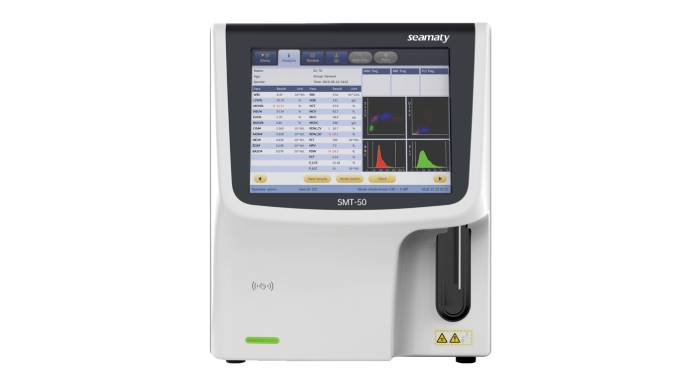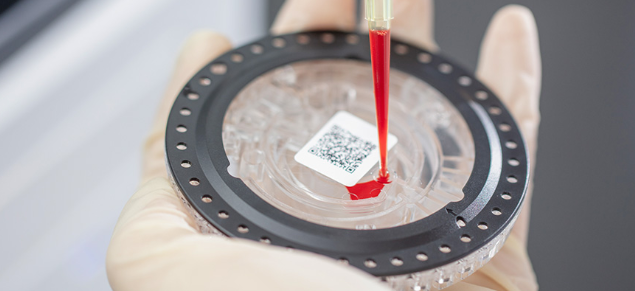Hematology is a branch of medical science that deals with the study of blood, blood-forming organs and diseases. Hematology analyzers are an important part of this field, used to diagnose and monitor conditions like leukemia, anemia and sickle cell disease. If you're interested in learning more about hematology analyzers, or want to know which one is best for your needs, read on.

1. What is a hematology analyzer and what does it do
A hematology analyzer is a machine that is used to count and analyze blood cells. The machine uses a variety of different techniques to determine the number and type of blood cells present in a sample. Hematology analyzers can be used to diagnose a variety of different conditions, such as anaemia, leukemia, and thalassemia. In addition, hematology analyzers can be used to monitor the progress of a patient's treatment. identify potential problems early on. Hematology analyzers are an essential piece of equipment in any hospital or clinical setting.
2. How does a hematology analyzer work
The machine works by first taking a small sample of blood from the patient. The blood is then placed into a chamber where it is mixed with a reagent. The reagent causes the blood cells to swell, which makes them easier to count. Once the blood cells have been counted, the machine prints out a report that includes the total number of each type of cell. The hematology analyzer is an important tool in diagnosing diseases such as cancer and anaemia.
3. Types of hematology analyzers
There are a variety of different types of hematology analyzers available on the market today. Some of the most popular options include cell counters, which can be used to count the number of cells in a sample; coagulation timers, which measure the time it takes for blood to clot; and sedimentation rate measurements, which determine the rate at which red blood cells settle in a tube. Hematology analyzers can also be used to measure a variety of other parameters, such as white blood cell count, platelet count, and hemoglobin levels. In addition, some analyzers are able to perform specialised tests, such as blood typing or matching. With so many options available, it is important to choose the right hematology analyzer for your specific needs.
4. Advantages of using a hematology analyzer
A hematology analyzer is a machine that helps to count and analyze blood cells. This machine is used in many hospitals and clinics as it provides accurate results within minutes. The main advantage of using a hematology analyzer is that it is much faster than manual methods of blood cell counting. This machine can also help to identify different types of blood cells, which can be helpful in diagnosing various diseases. In addition, a hematology analyzer is relatively easy to use and interpret, which means that even non-medical personnel can be trained to use it effectively. Overall, a hematology analyzer provides many advantages over traditional methods of blood cell counting, making it an essential tool in many healthcare settings.
5. Disadvantages of using a hematology analyzer
While hematology analyzers offer a number of advantages, there are also several disadvantages to using this type of equipment. One major disadvantage is the cost. Hematology analyzers can be quite expensive, and the cost of maintaining and repairing the equipment can also add up over time. Additionally, hematology analyzers require regular calibration, which can be time-consuming and costly. Another downside to using hematology analyzers is that they can sometimes produce inaccurate results. This is often due to user error, but it can also be caused by factors such as faulty equipment or incorrect calibration. Finally, hematology analyzers can be quite complex to use, and training is often required in order to operate the equipment properly.
6. Who should use a hematology analyzer
A hematology analyzer is a machine that helps to measure the levels of red and white blood cells, as well as platelets, in a sample of blood. This information is important for diagnosing and monitoring a variety of conditions, including anemia, leukemia and thrombocytopenia. Hematology analyzers are typically found in hospitals and laboratories, and are used by healthcare professionals such as doctors, nurses and laboratory technicians. However, some newer models of hematology analyzer are small enough to be used in GP surgeries and other primary care settings. This means that more patients can have their blood tested locally, rather than having to travel to a hospital or laboratory.
Summary
• Hematology analyzers are used to measure the concentration of different cells and elements in blood.
• The way a hematology analyzer works is by shining a light on a sample of blood and measuring how much light is absorbed. -There are three types of hematology analyzers: optical, impedance, and laser.
• The advantages of using a hematology analyzer are that it is accurate and fast.
• The disadvantages of using a hematology analyzer are that it can be expensive and there is the potential for human error.
• Hematology Analyzers should be used by people who need to accurately measure the concentration of cells or elements in their blood.


